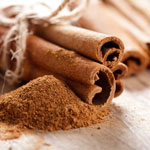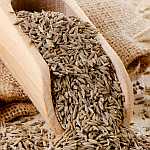Ayurveda-Verbände in England schließen sich zusammen
30.08.2007 | Mitte August verkündete die APA (Ayurvedic Practitioners Association) in Großbritannien den Zusammenschluss von drei bisher unabhängig voneinander agierenden Verbänden: die „Ayurvedic Medical Association“ (AMA), die „Ayurvedic Practitioners Association“ (APA) und die „Maharishi Ayurveda Practitioners Association“ (MAPA). Grund ist unter anderem die in Großbritannien gesetzlich geltende Anforderung, dass jeder Berufsstand nur durch ein einziges Gremium vertreten ist. Mehr dazu in Englisch.
It is with great pleasure that we announce herewith the merging of registers of the Ayurvedic Medical Association (AMA), the Ayurvedic Practitioners Association (APA) and the Maharishi Ayurveda Practitioners Association (MAPA). AMA president Dr. Shantha Godagama, APA president Dr. Donn Brennan and MAPA president Dr. Geoffrey Mead have recently agreed to merge the practitioner members of these three associations under the register of the APA, which will from now on function as the sole representative body for these members on all regulatory and EHTPA levels.
Please find below a letter to Prof. Michael Pittilo, chair of the Department of Health regulatory Steering Group, which explains in more detail the reasons for this important step towards statutory regulation of Ayurveda as well as the unification of Ayurvedic professionals in the UK.
With warm regards and best wishes,
The APA.
Ayurvedic Practitioners Association
Representing Ayurvedic Practitioners throughout the United Kingdom
info@apa.uk.com
www.apa.uk.com
Dear Professor Pittilo,
It is with great pleasure that we, Dr. Shantha Godagama (AMA president), Dr. Donn Brennan (APA president) and Dr. Geoffrey Mead (MAPA president), are informing you herewith of our recent decision to merge the registers of our associations for the purposes of complying with requirements for statutory regulation of the Ayurvedic profession in the UK.
This mutual decision to merge our three registers was taken by us after careful consideration on 23rd July 2007. The following briefly summarises the reasoning behind our decision:
It has become clearly obvious for us that there is little advantage in having several Ayurveda associations for the relatively small number of practising Ayurvedic professionals in the UK. Apart from the unnecessary duplication of efforts in running parallel registers, this kind of division only hinders communication among ourselves, creates a negative reputation for Ayurveda and prevents coherent activity for the advancement of our profession. In fact, the separation of the Ayurvedic community has, as you know very well, in the past repeatedly endangered the statutory regulation of Ayurveda in this country.
In order to create a solution for this situation, the executive directors of our associations have been holding regular discussion meetings since 2005, and we have been collaborating on various projects and initiatives that benefited our members, the Ayurvedic profession as well as the coming-together of Ayurvedic practitioners in the UK. For instance:
• AMA and APA discussed already in June 2005 the possibility of a common register for AMA and APA practitioners with joint executive committees to minimise administrative efforts and costs, aligned entrance requirements and fees, and members equally benefiting from services offered by both associations.
• The majority of MAPA members also joined the APA and thus enjoyed the benefits of being members of both professional associations.
• In recognition of the AMA’s pioneering work in the field of education via the College of Ayurveda, the APA aligned its educational strategies with those of the College and has been working closely with its director Dr. Mauroof Athique to improve the standards of Ayurvedic education and training in the UK.
• APA and MAPA executives jointly compiled a comprehensive briefing document for the Indian and Sri Lankan Governments in November 2005 to update them on important UK regulation and legislation issues pertaining to Ayurveda.
• In December 2005 executives of AMA, APA and MAPA jointly met with the Sri Lankan High Commissioner in London to discuss collaborative activities in support of Ayurveda.
• In May 2006 APA and MAPA executives, together with their colleagues from the British Association of Accredited Ayurvedic Practitioners (BAAAP), engaged in discussions with an Indian Government delegation at the Indian High Commission in London, informing the delegates about the situation of Ayurveda in the UK and lobbying for their support.
• AMA, APA and MAPA have been unanimous in their calls for the inclusion of the term “traditional medicine” alongside herbal medicine in the name of the (former) EHPA.
Although there is active communication and collaboration between our three associations, the requirement of statutory regulation for each profession to be represented by one single body prompted us to go yet another step forward and to initiate the creation of a unified register for all Ayurvedic professionals in the UK. It is with this intention in mind that we have decided to merge, as a first step, the members of our three associations under the register of the APA, which will from now on function as the sole representative body for our members on all regulatory levels, including the EHTPA.
AMA and MAPA will continue to function as Ayurvedic interest groups, and AMA directors will continue their activities on Government committees, such as the Herbal Medicines Advisory Committee (HMAC) and the Independent Review Panel on the Classification of Borderline Products. However, for the purpose of unifying all Ayurvedic professionals in a single body, as required by the Department of Health, the current AMA and MAPA directors will now join the APA executive committee. Together we will assess, if there is any need for amendments to the APA constitution, so that our three registers can merge according to agreed standards and criteria.
As a second step in our efforts to create a single, unified register for Ayurveda in the UK, we will also approach our BAAAP colleagues to propose a final register merge of all Ayurveda professionals. We shall contact Dr. Deepika Gunawant (BAAAP president) in due course and inform her about our proposal in more detail.
It is our firm intention to come to an agreement with all our UK colleagues in advance of the final Steering Group report, so that our profession’s commitment to statutory regulation can be documented in the group’s report to the Department of Health.
In the meantime, we would be highly appreciative of any further advice or assistance from your side that would support our efforts to unite all Ayurvedic professionals and thus facilitate the progress of statutory regulation of Ayurveda in the UK.
With warm regards and best wishes,
Dr. Shantha Godagama Dr. Donn Brennan Dr. Geoffrey Mead
(AMA President) (APA President) (MAPA President)



.jpg)


.png)




